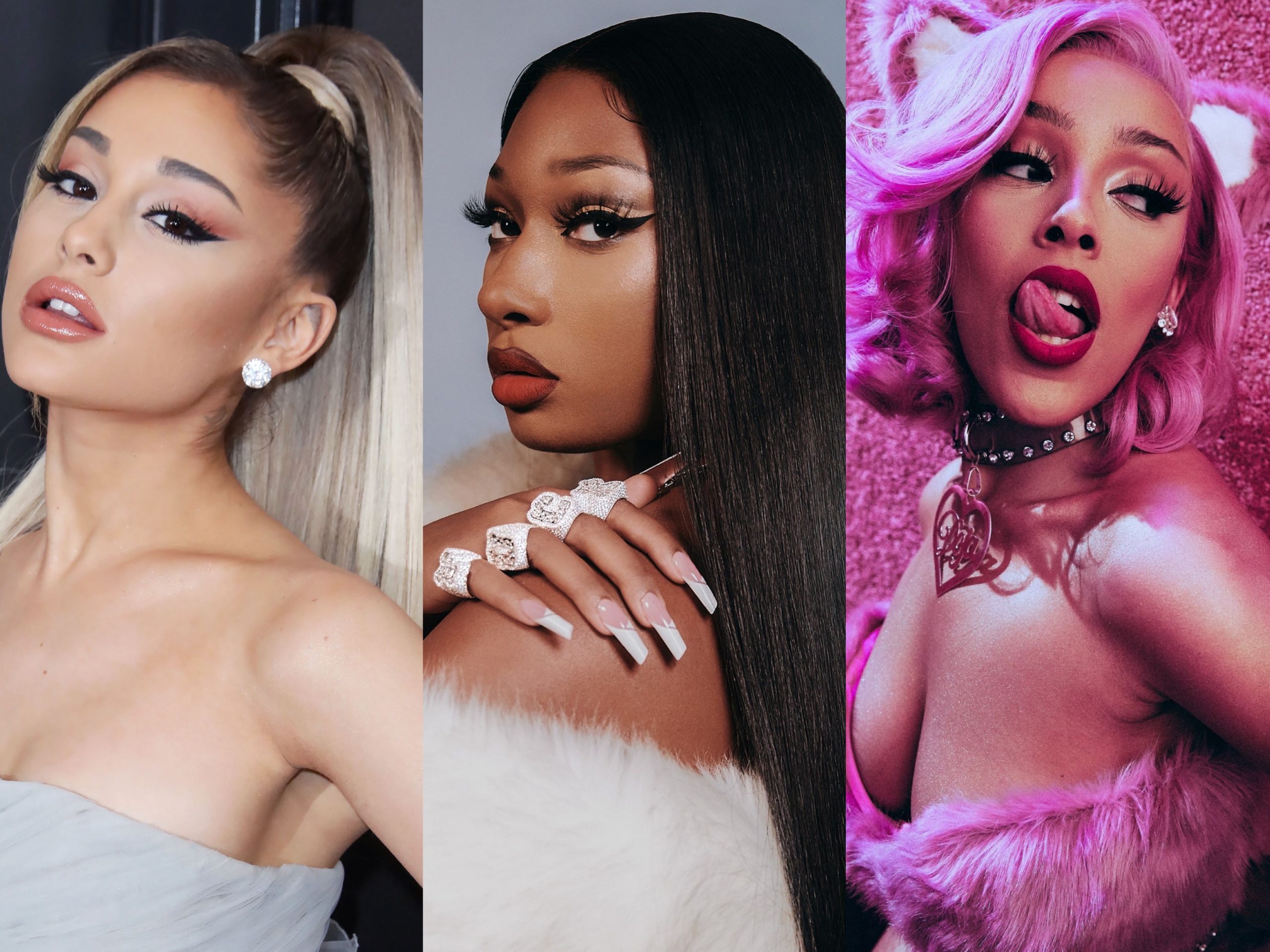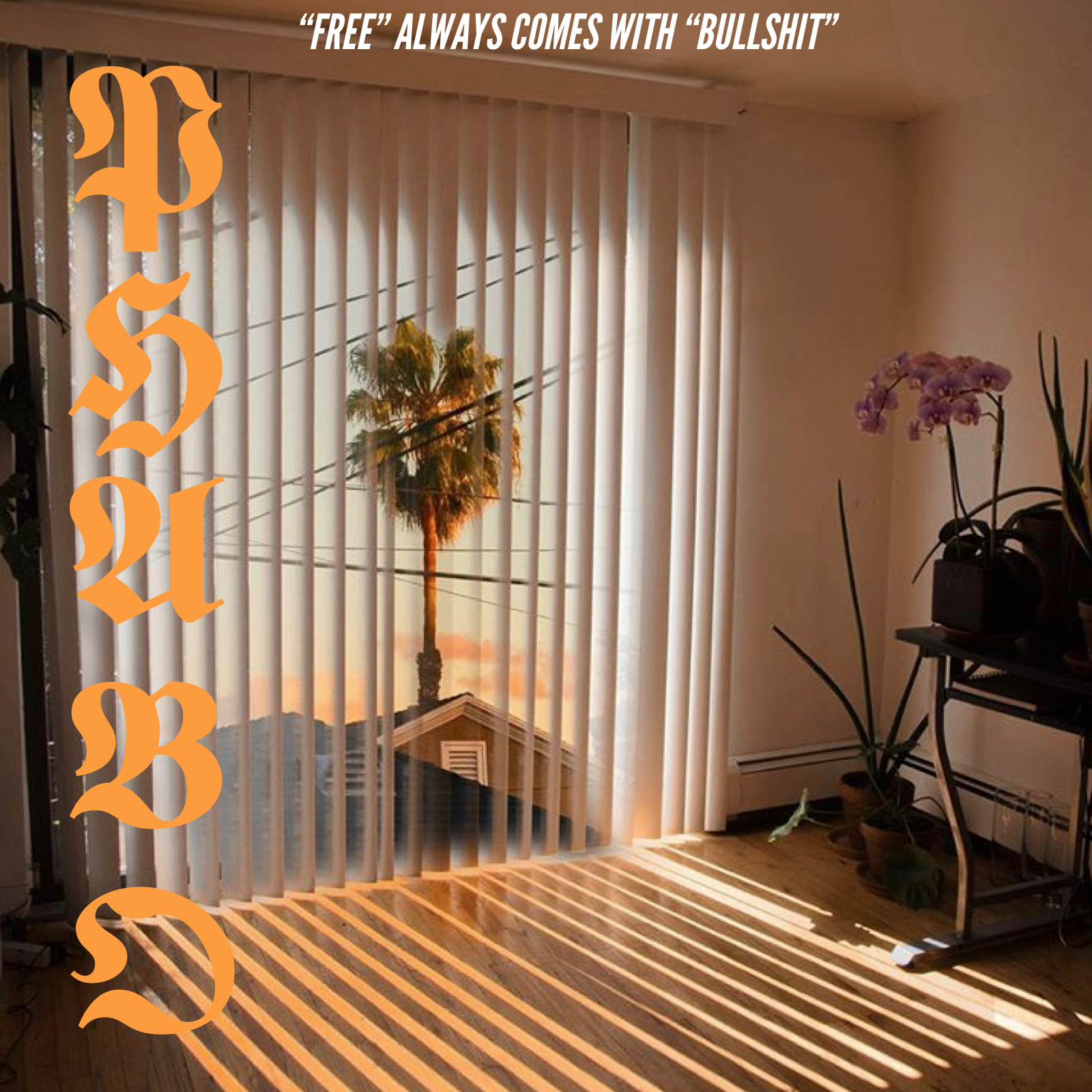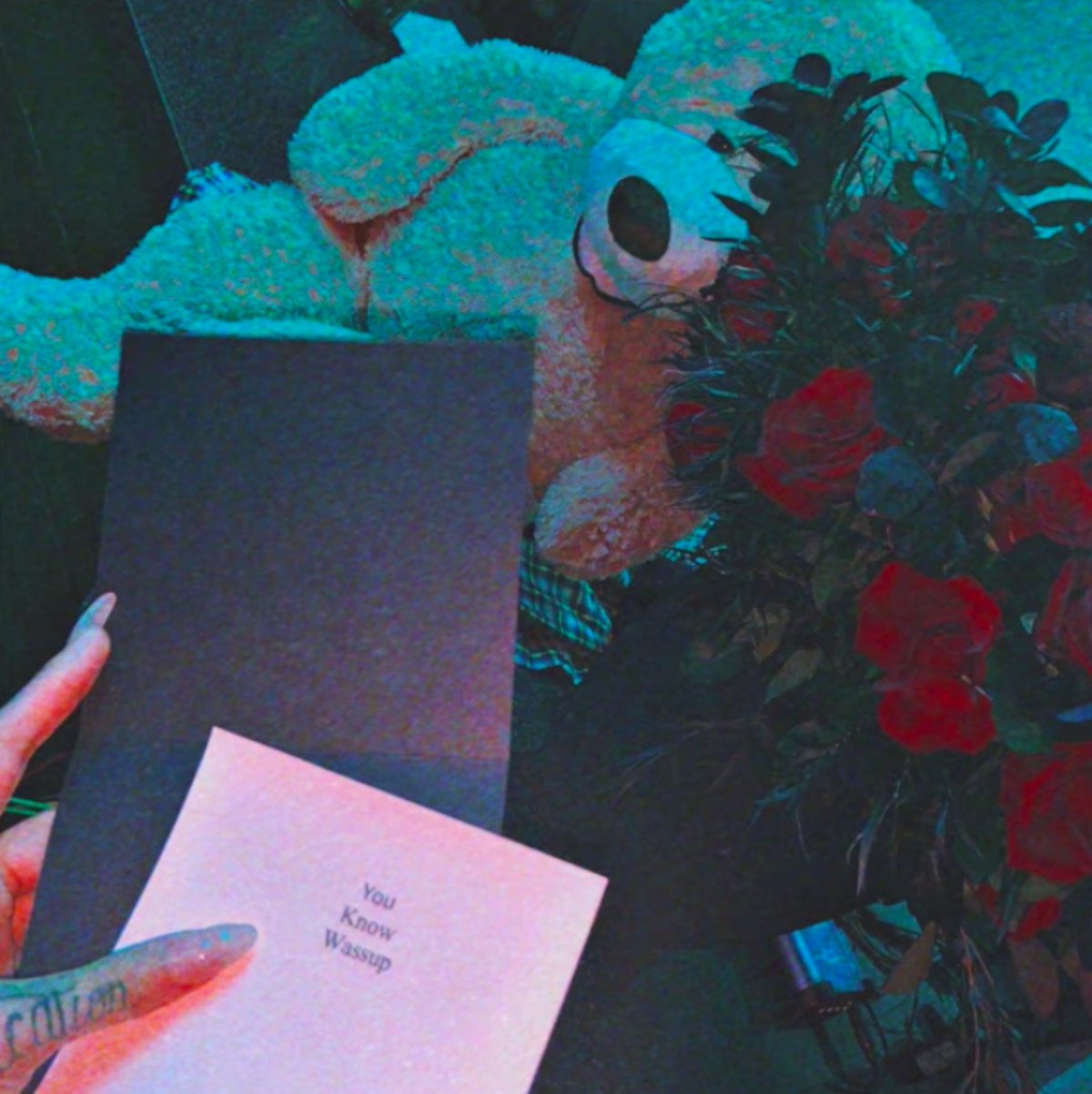Kendrick Lamar is a changed man. It’s been almost three years since good kid, m.A.A.d. city, and he has earned worldwide fame, bountiful wealth, and hip-hop prestige. It is evident from the long production cycle of To Pimp a Butterfly that Kendrick has been searching and digging for inspiration and something meaningful to produce for posterity. Has he accomplished this latest mission?
[read-more Click here to read the review!]
Album review score out of 10
With its creative production, intense and mind-boggling lyrics, and immersive story-telling, Too Pimp A Butterfly is surely a world that we should all take a trip to at least once in our lives, and most likely stay there. Kendrick hit the nail on the head with this album, and has proved that he is here to stay (even though he proved that in his first studio album GKMC). Kendrick and this album have so much to offer in this album, it is truly a masterpiece. You know how My Beautiful Dark Twisted Fantasy (also known as MBDTF) is Kanye West’s classic album and how it made a huge impact on a lot of artist, well this is Kendrick MBDTF.
Production
9.1
Lyrics
9.5
Features: Rapsody, Thundercat, Bilal, Anna Wise, Snoop Dogg James Fauntleroy, George Clinton Ronald Isley, & Tupac
9
Hype
10
Pros
- Kendrick’s lyricism is still on point; it has evolved into another dense, expressive form.
- The features complement Kendrick’s themes and story.
- The classic production receives a creatively abstract update.
- The album rewards careful, repeated listening.
Cons
- If you’re not loving Kendrick’s selection of lyrical topics, you’re going to be frustrated throughout the album’s runtime.
- The production can sound same-y and isn’t as accessible as his earlier albums.
- The lack of widely-popular features could discourage a new listener from checking out the music.
9.4
Overall Rating
 Kendrick Lamar is a changed man. It’s been almost three years since good kid, m.A.A.d. city, and he has earned worldwide fame, bountiful wealth, and hip-hop prestige. It is evident from the long production cycle of To Pimp a Butterfly that Kendrick has been searching and digging for inspiration and something meaningful to produce for posterity. Has he accomplished this latest mission?
Kendrick Lamar is a changed man. It’s been almost three years since good kid, m.A.A.d. city, and he has earned worldwide fame, bountiful wealth, and hip-hop prestige. It is evident from the long production cycle of To Pimp a Butterfly that Kendrick has been searching and digging for inspiration and something meaningful to produce for posterity. Has he accomplished this latest mission?
Kendrick’s production collaborators are the usual suspects: Sounwave, Terrace Martin, Rahki, Tae Beast, Pharrell Williams. New sounds from Knxwledge, Thundercat, Flying Lotus, and LoveDragon slither through the record. Sonically, To Pimp a Butterfly is closer to the latter half of good kid, m.A.A.d. city’s “Real” rather than the bangers “Backseat Freestyle” or “Money Trees.”
To my ears, Butterfly is a blending of classic Parliament / Funkadelic, Miles Davis, Coltrane, Gil Scott-Heron, 2Pac, Outkast, and Pharcyde filtered through a contemporary neo-soul lens of Matt Martians, ?uestlove / the Roots / James Poyser, Brainfeeder, and D’Angelo.
good kid’s trendy instrumentals are nowhere to be found within Butterfly’s borders. Kendrick plays it funky, spacy, and smooth the whole way through. Some people are going to love the new sound, and others are going to not like it at all. In this way, Butterfly refuses to sonically compromise in the ways that good kid did around three years ago.
There are several new (and old) voices that fill out the album’s vocal interior.
Anna Wise, who contributed to “Money Trees,” “Real,” and “Bitch, Don’t Kill My Vibe” on good kid, returns on Butterfly’s “Institutionalized” and “These Walls.” Her talents are utilized in much the same way that they were on good kid. Her voice is smooth but haunting; the album’s producers often place her vocals upon the deeper registers of Kendrick’s voice to supply a classical sonic contrast.
Bilal appears for numerous vocal performances on “Institutionalized” and “These Walls.” I’m hearing echoes of Common and Kanye West from the mid-2000s again with him.
George Clinton shows up on “Wesley’s Theory” for a quick contribution where he trumpets the start of the album and name-drops the album title. Clinton’s appearance hearkens back to Doggystyle where he did much the same on “G Funk Intro” for Snoop Dogg.
Clinton asks a question: “are you really who they idolize?” This reflective question is one of the cornerstones of Butterfly: do I deserve to be here? Can I really make a difference despite all of these obstacles in my way? How can I be the voice of another person why I don’t yet understand myself?
 Dr. Dre appears here too, telling Kendrick that anyone can get a spot at the top, but that the real challenge lies in keeping it. It is evident to me that Kendrick intends to make good on his promise to become a legend in music, and that Butterfly is the latest step in accomplishing that lofty goal.
Dr. Dre appears here too, telling Kendrick that anyone can get a spot at the top, but that the real challenge lies in keeping it. It is evident to me that Kendrick intends to make good on his promise to become a legend in music, and that Butterfly is the latest step in accomplishing that lofty goal.
Going deeper into the music: “Wesley’s Theory” should key the listener into the sonic tones that the album will explore and inhabit. In fact, on “King Kunta” a pitch-shifted voice informs the listener that, soon, “the funk shall be within you.” And the funk is certainly here, and it’s here to stay.
Snoop Dogg appears like a mythic ghost from the now-distant 1990s California, a wizened relic of g-funk and West Coast bombast.
On “Institutionalized,” Snoop speaks on a child from West Side Compton, who has been blessed by God and is making his way towards a hip-hop legacy that will stand the test of time. But despite the boy’s progress in “making it,” he’ll never really leave the hood, or forget the lessons that he learned there. Kendrick is making a statement that attaining massive, worldwide success and recognition comes with plentiful costs and debts, many of them previously unseen.
Despite the records density of funk, its most agreeable exercise within the funk is, of course, “i.”
The version of “i” on Butterfly sounds like a live performance, and this performance is interrupted by a rowdy, impatient crowd that Kendrick appeals to later on in the track’s runtime. Overall, I like this version of “i” more than the previously-released single; it’s rawer, more energetic, and ties into the album’s larger theme of attempting to reach a generation that perhaps doesn’t want to listen anyway.
The sole exception to the funky smoothness is the previously-dropped single: “The Blacker the Berry.” Boi-1da has laced Kendrick with something at once modern and classic.
 I use the word “classic” in reference to the New York boom-bap of two decades ago; the drums on “The Blacker the Berry” knock harder than anything else upon Butterfly, and Kendrick’s vocal delivery reflects the intensity of the percussion. “The Blacker the Berry” is vocal, angry, and pained; it tonally reflects the fractured community that it is speaking for.
I use the word “classic” in reference to the New York boom-bap of two decades ago; the drums on “The Blacker the Berry” knock harder than anything else upon Butterfly, and Kendrick’s vocal delivery reflects the intensity of the percussion. “The Blacker the Berry” is vocal, angry, and pained; it tonally reflects the fractured community that it is speaking for.
Kendrick’s delivery is much like that of 2013’s “Control”; his voice is gruff, deep, barking as he raps about his African heritage, the institutionalized hate against his people, and his anger at his own hypocrisy.
A single dissonant synth line provides a standard- Kendrick melodic counterpoint as strings soar in the background of the track – it’s very minimalist and stripped down. Truly, it is the rawest track on Butterfly.
I am hearing echoes of Yeezus when I hear the feature from Assassin on “The Blacker the Berry”. Assassin’s performance is even more intense than Kendrick’s; his sound invokes hip-hop's Jamaican genesis.
Assassin’s hook of “how you no see the whip, left scars pon me back / but now we have a big whip parked pon the block” is a powerful usage of ellipsis that I enjoy a lot.
In fact, there are many literary devices employed all over this album. The most powerful is Kendrick’s reciting of a single poem that begins with the line: “I remember you was conflicted, misusing your influence.” The poem is recited against silence.
This may not seem like much, but this single line is merely a single stone that is later shaped and built up into an impressive monolith that looms mythic and mysterious.
Kendrick’s poem first appears on “King Kunta” and Kendrick gets further and further along in his reciting of the poem as the Butterfly record proceeds.
Finally, the poem is recited in full at the end of the album on “Mortal Man.” The poem is quite beautiful and is an artful summary of the album’s themes of guilt, doubt, self-hate, self-love, and optimistic perseverance in the face of total evil.
To the tune of silence, Kendrick resigns and says, “shit, and that’s all I wrote.”
Soon after, Kendrick continues on, saying that he planned on naming the poem something, but decided that it really isn’t a poem after all.
Then, he changes the subject, and he asks someone about the meaning of certain metaphor… something about the ground opening up.
This someone is revealed to be none other than Tupac Shakur.
Kendrick begins to ask Tupac questions about the music industry, the brevity of life, making the best of opportunities, managing fame and identity, and the responsibilities of legacy and inheritance. All of these themes derive from the lyrics that Kendrick delivers throughout the record, and it’s as if he is appealing to Pac because Pac is the only one who could give the answers that he needs to hear.
Tupac’s replies sound quite natural and organic, despite having been recorded during a radio station interview in the 1990s.
Kendrick states that music is all the hope we have left, and Tupac concludes with the perspective that making hip-hop is just allowing the spirits of the departed to speak through. This is very poignant, since Tupac has been dead for so long, but still retains a vivid place in hip-hop’s legacy. The fact that Kendrick feels a very close affinity to Tupac and his life’s work makes this that much more profound within the scope of the album.
At the very end of the interview, Kendrick recites another poem. This time, it’s about a caterpillar and a butterfly. The caterpillar eats and destroys everything in its city in order to survive. The caterpillar resents the butterfly; the butterfly is beautiful, and is talented, creative, and thoughtful. The caterpillar works to pimp the butterfly for its own benefit: I’m gonna get mine, even if I gotta take yours.
Eventually, the caterpillar begins to realize that this city cannot be destroyed, and that is should be healed instead. The caterpillar begins to metamorph into a butterfly. “Wings begin to emerge, breaking the cycle of feeling stagnant / finally free, the butterfly begins to shed light on situations that the caterpillar never considered, ending the eternal struggle.”
“Although the butterfly and caterpillar are completely different, they are one and the same.”
Kendrick asks Tupac what he thinks about that, but Tupac’s gone. To Pimp a Butterfly ends with Kendrick repeating “Pac?” into the void that the murdered emcee has left behind. Kendrick is left with only himself to find his own answers now.
The Kendrick – Tupac reveal is a stunning technique that I’ve yet to hear as artfully executed anywhere else in hip-hop music. It completes To Pimp a Butterfly, an already dense and inaccessible record.
Kendrick Lamar is a changed man; he has emerged from that cocoon of hurt and anger. To Pimp a Butterfly is the blossoming of his beauty as a musician and as a person.
The result is just as delicate and beautiful as that of a butterfly upon the leafy green majesty of African trees.
That butterfly is here just for now, and is gone forever in the next second; we should behold it with love and wonder while its still here.

Track By Track Review by Yasin Ingrum
Wesley’s Theory
When I press play, I’m greeted with the statement “Every n*gga is a star”, it catches your attention when you really think about it, like: whoa, was that just said? But, with that being said, that’s not the only thing that’ll catch your attention, let’s talk about the production. This has got to be some of the funkiest sounds that I’ve heard in a long time, groovy and psychedelic would describe this song. Being presented with the sounds of the 70’s and 80’s was a shocker at first, because truthfully it’ll take some time for the listener to get use to Kendrick using this kind of sound for his music, but it works. That’s the thing about this song, it works, from the sound to the lyrics, everything works. The first verse is from the perspective of any black entertainer, while the second verse is from the perspective of capitalist America, personified by Uncle Sam. Wesley’s Theory speaks on the “pimping” of the butterfly. Also, the song is an extended metaphor describing how successful black artists are “pimped” by the entertainment industry. Personally I think having George Clinton and Thundercat on the song is a great addition. With all the unique and groovy sounds, Kendrick’s lyricism, and the new sound, I’d say this song is one the best introductions to any album that I've heard in a while.
For Free (Interlude)
The church choir brings in the song gracefully, which is followed by the words “I don't know why you trying to go big, you ain't shit. Walking around like you God's gift to Earth, you ain't shit. . .” being able to experience things like this in music is what makes this song entertaining. After receiving a bunch of insults from voices of various women in song, Kendrick Lamar replies with his poem “This D*ck Ain’t Free”, where he counters the common notion that, “pussy cost money, but dick is free”. This is also Kendrick sticking up to “the man.” He refuses to be used and abused, like many others in society. With this being said, this track offers something new to the table, and something new to music. Having jazz instruments in the background during his poem really sets a mood for the song and paints a possible picture of him standing on stage in a bar during an “Open Mic” night. The voice he uses for him poem may not please the ears of listeners, but it adds creativity rather than him plainly reciting his poem.
King Kunta
This is one of the many attention catching tracks on the album. The word unapologetic would be an understatement to describe this track. In this track Kendrick’s vanity is captured, he questions the loyalty of his friends, claiming to have risen from “a peasant, to a prince, to a motherf*ckin' king” (which is a line from the song). This is the first track that many of us heard before the leak of the album, and personally I wasn’t feeling it as first. This track can take some getting used to, not many will gravitate towards it during first listen, and I know I didn’t. But, once you get in the groove of the sound, it’s something special to listen to from beginning to end. I had a last listening to something like this, you would too.
Institutionalized
Kendrick covers wealth’s corruptive powers, and how many people are negatively affected, almost brainwashed, by the idea of getting rich. He also condemns violence and envy. Both of these are brought on by the institution of money. We are all at some level, ‘institutionalized.’ This is one of many tracks on this album that many will identify with, in other words, this song is something we can all relate to. The bass brings in the song smoothly, each sound so unique and identifiable, you’ll have to rewind this one just to embrace the smooth sounds of this song. Kendrick’s rhymes flow like water through the track as he spews each verse. Anna Wise and Bilal end the first portion of the song by saying “Master take the chains off me”, and we enter the next portion of the song. The second portion begins with Kendrick saying “Life can be like a box of chocolates. . .” which is what describes this song, something unexpected, why, because who would’ve expected Kendrick to pull off something as elegant as this on such a smooth beat.
These Walls
A women moans and screams as the song begins, and then we are introduced with a beat that reminds you of something that you may have heard at a skating rink during the 70’s or 80’s. For the first two verses Kendrick discusses having sex with a women, but in a way that’s actually interesting. Most artists are not able to create an interesting sex song, I feel like rappers create mediocre sex songs, but Kendrick proves me wrong. Kendrick’s flow is flawless on this song, and he definitely knows how to make it interesting. In the third verse, he gives us details that the women he’s speaking of is the baby momma of the gangbanger who killed his friend in “Sing About Me”, which is a song on his album “good kid, m.A.A.d city”. This is definitely one of Kendrick’s most complex songs.
U
With more melancholy production than the funk-influenced “i,” Kendrick peers deep into the dark caverns of his heart to expose the negative thoughts that plague his mind, at point referring to himself as “a fucking failure”. A comment that Kendrick has about this track is; “That was one of the hardest songs I had to write. There’s some very dark moments in there. All my insecurities and selfishness and letdowns. That shit is depressing as a motherfucker. But it helps, though. It helps.” Personally, I can relate to this track, and I think we all can. I’m very proud of him for releasing a track like this, and the production is top notch. Songs like this will always prosper in the industry, especially when it’s done right.
Alright
“Alright” coming in afterwards “u” is appropriate, as it details how Kendrick means to escape from his troubles. Kendrick attempts to capture the post-depression moments where people are able to ignore their problems and comfort themselves with the idea that’ll be alright in the end. This song is just like the title, alright. There’s nothing much to this track, it bumps (which means that it’s something for to nod your head to.
For Sale (Interlude)
This song offers a deeper insight into the previously introduced figure of Lucy. As the song goes on, it is understood that Lucy is short for Lucifer, hence the lines about temptation and signing contracts. Lucy is telling Kendrick to sign the contract so his problems can be solved. Many entertainers are believed to have sold their souls to the devil for more fame. I’m really intrigued by tracks like this because, Kendrick is speaking on how he or other artists have sold their soul to a record label to solve their problems, not many artists admit things like this in their music so it’s good to hear something different. His voice is an addition to the already soothing and smooth track. He talks about his vices, and the struggle he’s dealing with. But, other than those things, there’s nothing else to this song.
Momma
“Momma” tells of the personal growth and self-realization that Kendrick experienced after having persevered against his internal struggles. In the song, Kendrick says “This feelin' is unmatched, this feelin' is brought to you by adrenaline and good rap”, and he’s right, the feeling that this tracks gives you cannot be duplicated. Reminds me of riding down the block in a Cadillac, the bass bumping in my speakers, such a sick experience that everyone should go through at least once.
Hood Politics
Hydraulics, block party, old school concerts, are just a couple of thoughts that come to my mind when this song comes on. That booming bass, Kendrick’s raw lyrics, and the hook makes this song complete. When songs like this play on his album, it gets you hype and ready to jump out your seat. Kendrick is giving us a look into the way the “Hood” works: the literal politics of how people talk. The lyrics describe a whole other world separated from America. Kendrick actually previewed the first two verses of this song on a freestyle where he spit over Notorious B.I.G. instrumentals on Big Boy’s radio station.
How Much a Dollar Cost
I could talk all day about how perfect this song is, how there’s such a huge meaning behind this song, and how perfectly it’s mixed, but I’ll keep it short and simple. Kendrick gives a look into his talk he had with a homeless man (who later reveals himself to be God), how after his conversation he realizes that he had to be humbled to become humble. Kendrick’s deep lyrics, storytelling, flow are at an all-time high in this song. In won’t give my own interpretation of this song, because I may be wrong, I’ll the listeners decide the meaning behind this song. If I could describe this song in one word, Perfect!
Complexion (A Zulu Love)
This song is about educating society on beauty standards, especially colorism. Colorism affects the black community profusely due to its roots, which spawn from the history of slavery in America. In the song, Kendrick details the importance of loving all forms of black, no matter how light or dark. I learned a lot from this song, and I think that what Kendrick’s intention was, to teach us something. Being able to listen to tracks like this is refreshing. Smooth, peaceful, and insightful would describe a song like this. Being able to spark the listener’s interest, and catch the attention of the listener is what I look for in music, and that’s what Kendrick did. Rhapsody did an awesome job with her verse, this was my first time listening to her, and I have to say that she and Kendrick have some crazy chemistry on this song!
The Blacker the Berry
“The Blacker the Berry” is an extrapolation of the themes in Lamar’s previous release, “i”. While “i” celebrates self/blackness, “The Blacker the Berry” deals with racialized self-hatred. Taken together the two songs contradict each other, though this kind of double-consciousness has always been part of African American experience. This has got to be the roughest track on the album, so much raw and intense energy in one song. It kind of feels like Kendrick locks the listener in a room, while he performs the song, which means that I feel like he’s making a personal connection with the listener. Kendrick does a great job of keeping us entertained with a song like this, while also opening our mind and painting pictures for us.
You Ain’t Gotta Lie (Momma Said)
The song is based along the lines of “the loudest in the room, is the weakest in the room”. Those who tell don’t know and those who know don’t tell. It’s a powerful message of the purgatory that entertainers and rappers can enter if they are not stratospherically successful, but not anonymous enough to return to their hood without receiving attention from everyone they see. I’ll let you guys think about that. But, I really appreciate songs like this. It’s something about this song that sooths the song. It reminds you of those family cookouts where everyone is having fun and dancing, while all the cousins are playing in the yard together. Nostalgia, mixed with some honesty in Kendrick’s lyrics.
i
Though To Pimp a Butterfly revolves around spiritual turmoil, self-doubt, as well as negative temptations, this song offers redemption. I didn’t really enjoy this song at first, but the more I listen to it, I began to love it. But, maybe that’s just me. There’s so many interesting and entertaining things in this track, especially since a live performance made the cut for the album. It’s enjoyable.
Mortal Man
This track wraps up the whole album, and it is revealed that Kendrick is having a conversation with 2Pac. 2Pac’s words come from an interview he did a while, and is an interesting way to conclude the album. This piece may surprise some, personally it doesn’t me, but I will admit that it as an interesting way to conclude his album. However, the lyricism in this song is at an all-time and have consistent energy throughout each verse.

 Film & Television7 years ago
Film & Television7 years ago
 Film & Television7 years ago
Film & Television7 years ago
 12 years ago
12 years ago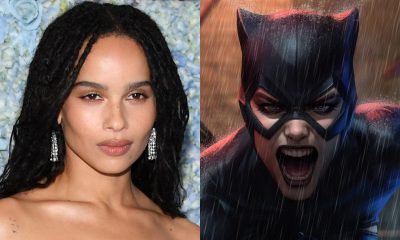
 Film6 years ago
Film6 years ago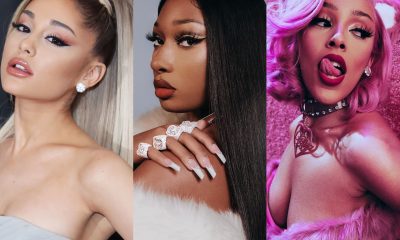
 Music5 years ago
Music5 years ago
 Music7 years ago
Music7 years ago
 Film6 years ago
Film6 years ago
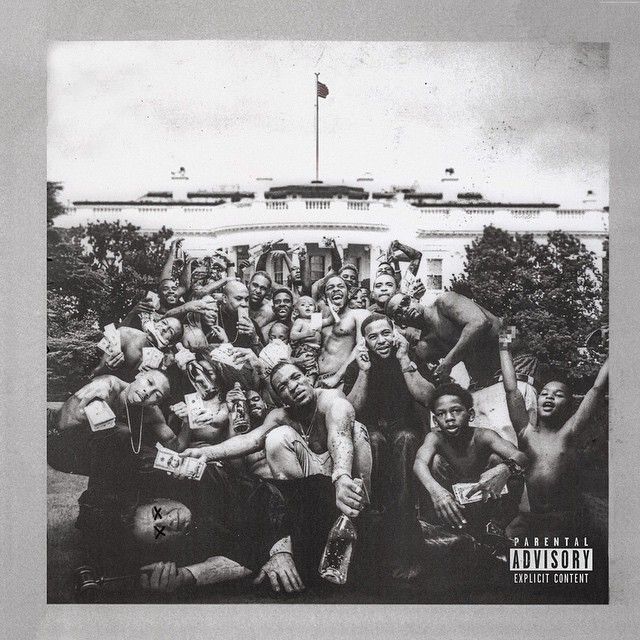

 Dr. Dre appears here too, telling Kendrick that anyone can get a spot at the top, but that the real challenge lies in keeping it. It is evident to me that Kendrick intends to make good on his promise to become a legend in music, and that Butterfly is the latest step in accomplishing that lofty goal.
Dr. Dre appears here too, telling Kendrick that anyone can get a spot at the top, but that the real challenge lies in keeping it. It is evident to me that Kendrick intends to make good on his promise to become a legend in music, and that Butterfly is the latest step in accomplishing that lofty goal. I use the word “classic” in reference to the New York boom-bap of two decades ago; the drums on “The Blacker the Berry” knock harder than anything else upon Butterfly, and Kendrick’s vocal delivery reflects the intensity of the percussion. “The Blacker the Berry” is vocal, angry, and pained; it tonally reflects the fractured community that it is speaking for.
I use the word “classic” in reference to the New York boom-bap of two decades ago; the drums on “The Blacker the Berry” knock harder than anything else upon Butterfly, and Kendrick’s vocal delivery reflects the intensity of the percussion. “The Blacker the Berry” is vocal, angry, and pained; it tonally reflects the fractured community that it is speaking for.










